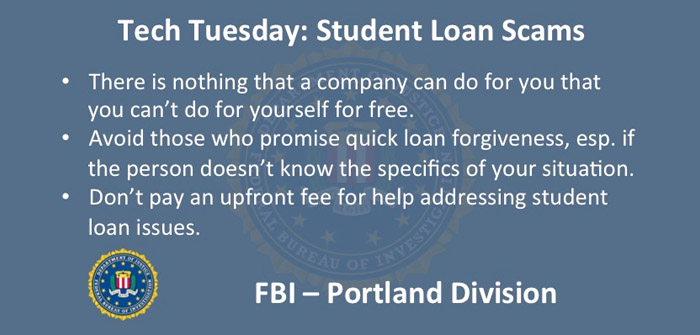(Photo / Courtesy of FBI)
Oregon and Washington college kids are packing up and heading back to class in the next couple of weeks. That means more tuition, more books and more bills. For many folks, the only way to get that education is to take out big loans, either through the federal government or private lenders.
When you get to the point that you have to start paying off those loans, our friends at the Federal Trade Commission (FTC) have a warning about fraudsters who say they are only too happy to help.
The catch? You either have to pay an upfront fee or a monthly fee. They might claim that your fee will go towards your debt, but if you end up doing business with a scam artist, he will just take your money for himself. He will do nothing at all to help you with your loan – or give you minimal services that you could have gotten for free.
Here are some tips from the FTC on how to avoid student loan repayment scams:
- There is nothing that a company can offer that you cannot do for yourself for free.
- Avoid any offer that promises quick loan forgiveness, especially if the person contacting you really has no idea as to the specifics of your debt situation. Many scammers will promise to get rid of your debt fast, but, in reality, they can’t help you.
- Never pay an upfront fee. In this situation, the FTC says it is illegal for companies to charge you a fee for a service in advance.
- Neither a logo nor an official-looking website means that the company is real or trustworthy. Many scammers will use lookalike logos or even use a real Department of Education seal to make their companies look more legitimate.
If you have been victimized by an online scam, report it to the FBI’s Internet Crime Complaint Center at ic3.gov or call your local FBI office.





